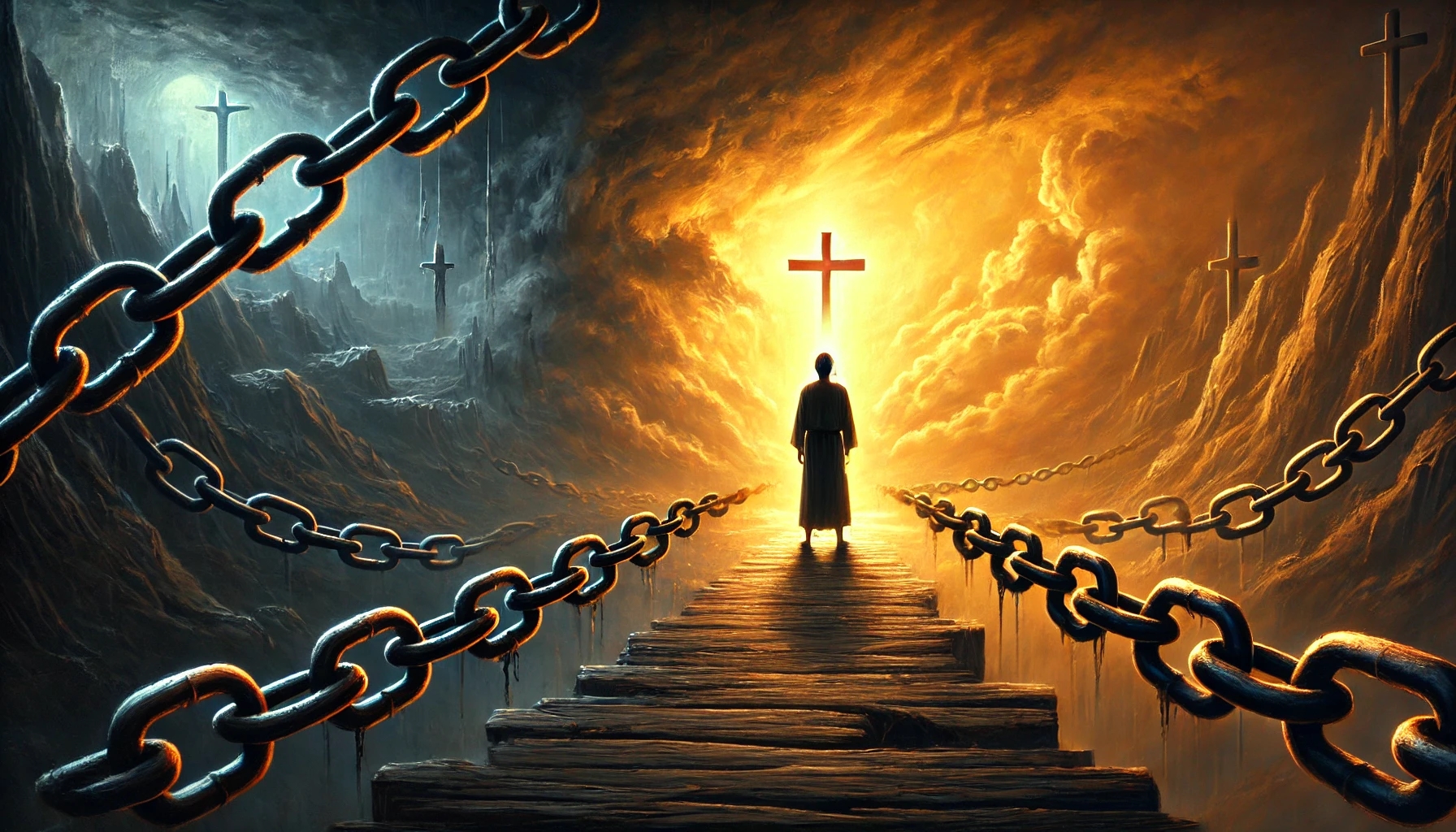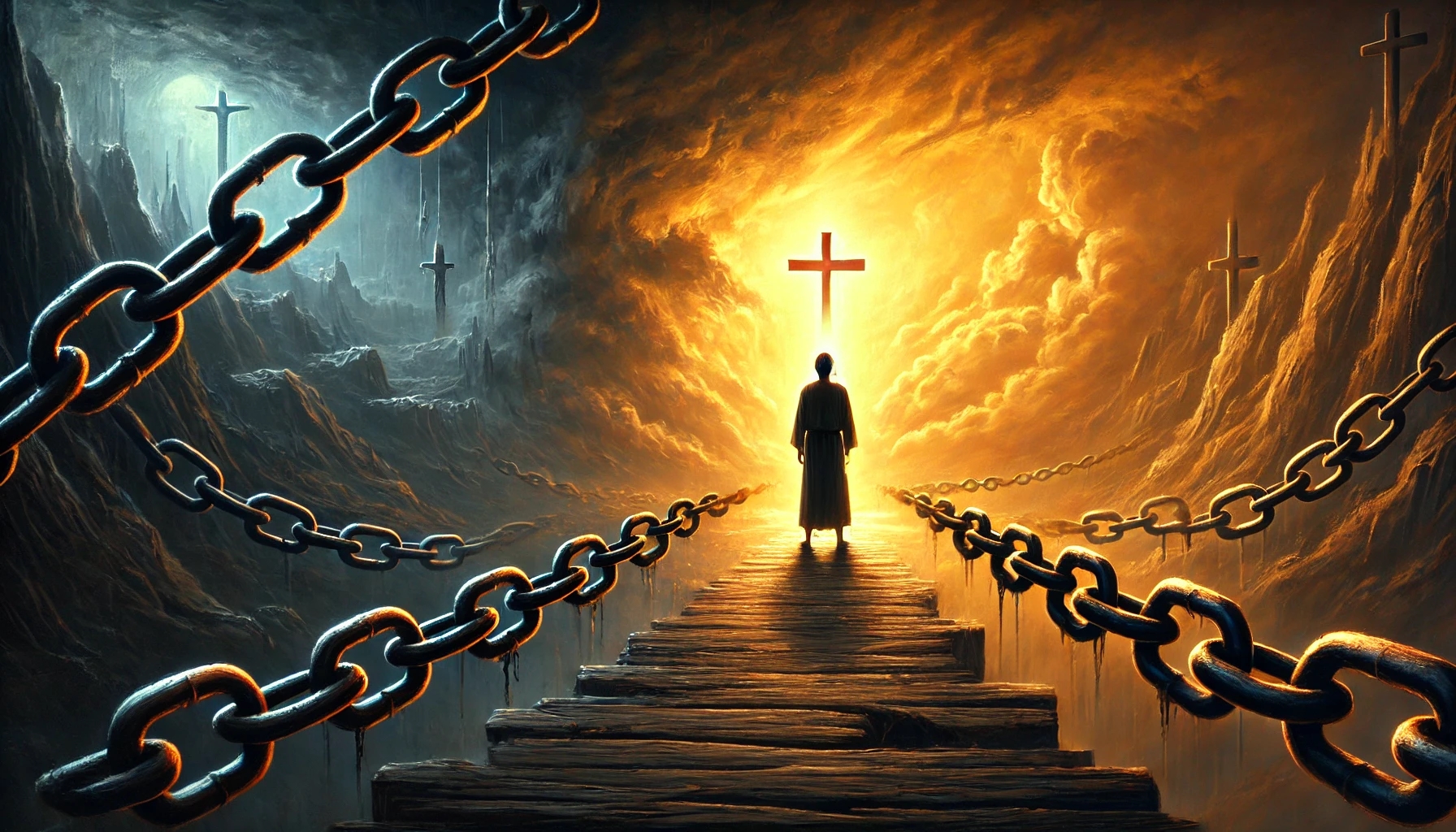

6.2 God Is Entirely Good and Righteous
God is Perfect – in Justice, Faithfulness, and Love
Read Deuteronomy 32:4 and Psalm 92:16. What do these verses teach us about God’s faithfulness and justice?
The Bible reveals to us a God who not only demands love and justice but lives them in a perfect way. His faithfulness and justice are unwavering and limitless. Deuteronomy 32:4 describes God as the “Rock,” whose “deeds are perfect” and whose ways “are all just.” Psalm 92:16 confirms that He is just and that no injustice can be found in Him.
These truths stand in direct contrast to human nature. While people are often led astray by selfishness, ignorance, or sin, God always acts according to perfect wisdom and love. Zephaniah 3:5 shows that God’s justice is consistent – every morning He brings His righteousness to light, yet the wicked remain stubborn in their behavior.
God’s perfect justice means that He does not act in a partisan or arbitrary way. He knows the best way for all people and always works to achieve what is best for them. Even if we sometimes do not immediately understand God’s actions, we can be sure that He operates in love and justice.
This realization should strengthen our faith and encourage us to follow Him with complete trust. When we recognize God’s perfect justice, we can live in the assurance that He directs everything in His wisdom – for our good and for the glorification of His name.
Read Psalm 9:8–9 and Psalm 145:8–18. What do these verses teach us about God?
The Bible teaches us that God is a just judge who rules the world with justice (Psalm 9:8–9). He judges impartially and perfectly because His very nature is the source of all justice. Unlike human judges, who are fallible, God is absolutely just, without any injustice or malice (Psalm 5:5).
Psalm 145:8–18 reveals another wonderful dimension of God’s nature: His justice is always coupled with mercy and kindness. He is “gracious and compassionate, slow to anger and abounding in love” (v. 8). His love and justice do not contradict one another – rather, they complement each other perfectly. While human power is often misused for selfish purposes, God always employs His omnipotence in accordance with His love and truth.
This divine balance is also evident in Exodus 33:18–19, where Moses asks to see God’s glory. God’s response is astonishing: He reveals His glory by showing His goodness. This makes it clear that true glory does not lie solely in power, but in the perfect union of love, mercy, and justice.
These attributes of God give us hope and confidence. They remind us that God not only judges justly but also acts kindly, lovingly, and full of grace. His judgment is not characterized by arbitrariness or harshness but by the deepest wisdom and goodness. In a world full of injustice, we can trust that God’s justice will ultimately be revealed and that even now He watches over His creation in love and mercy.
Why does such a good God allow so much evil in this world? Discuss this on the Sabbath.
This question is among the deepest and most difficult in the Christian faith. If God is perfectly good and just, why then is there suffering, injustice, and evil in the world? The Bible offers us various insights to help better understand this challenge.
-
God Created Man with Free Will
God is love (1 John 4:8), and true love cannot be forced. That is why God created man with free will – the ability to choose between good and evil. Unfortunately, man often chooses the wrong path, and the consequences of these choices are evident in our world (Deuteronomy 30:19).
-
Evil Is a Consequence of Sin
The Bible teaches us that evil originated in Satan’s rebellion against God (Isaiah 14:12–14; Ezekiel 28:15–17). Since the fall in the Garden of Eden, the world has been affected by sin and its consequences (Romans 5:12). Disease, suffering, injustice, and death are not created by God but are the result of separation from Him.
-
God Is Patient and Gives Room for Repentance
One reason why God still allows evil is His patience and His desire for people to turn back to Him (2 Peter 3:9). He does not want to lose anyone but rather gives everyone the opportunity to accept His love.
-
God Can Bring Good Out of Evil
Although evil exists in the world, God can ultimately turn it to good. The story of Joseph clearly shows this (Genesis 50:20): “You intended to harm me, but God intended it for good.” Even if we do not understand suffering, we can trust that God, in His wisdom, will work everything out for the best (Romans 8:28).
-
God’s Justice Will Ultimately Be Revealed
The Bible promises that God will not allow evil to reign forever. A day will come when He will judge all injustice and ultimately reveal His justice (Revelation 21:4). Until then, we are called to shine as lights in a fallen world, to pass on God’s love, and to trust in His justice.
The fact that God is perfectly good and just should not remain merely a theological truth, but should directly influence our daily lives and our faith. When we recognize that God’s justice and goodness are absolute and unchanging, it has several practical implications for our everyday life.
-
Trust in God’s Guidance
We often encounter situations where we experience injustice or do not understand why certain things happen. Yet the Bible assures us that God is “the Rock” whose “deeds are perfect” (Deuteronomy 32:4). This means we can trust Him in all circumstances – even when we do not immediately understand what He is doing. This trust helps us let go of worries and fears and strengthens our faith.
-
Reflect Justice in Our Actions
God’s character is our model. Psalm 145:8–18 shows that God is gracious, compassionate, and abounding in kindness. As His children, we should reflect these attributes in our daily lives. This means:
-
Fairness in Our Decisions – Whether at work, in the family, or with friends, we are to act honestly, justly, and without prejudice.
-
Practicing Patience and Mercy – Just as God is patient and abounding in kindness, we should show patience toward others, even when they wrong us.
-
Advocating for Justice – God expects us not to stand by idly when injustice occurs. Whether it is social injustice, poverty, or discrimination, we are called to stand up for justice within our capacity.
-
-
Hope in Difficult Times
In a world full of injustice, many wonder: Why does God not intervene immediately? But the Bible explains that God is long-suffering and gives everyone the opportunity to repent (2 Peter 3:9). This means we do not have to despair when we experience injustice. We can trust that God’s justice will one day be fully revealed (Revelation 21:4). This hope helps us remain steadfast in challenging times.
-
Peace Through God’s Unchanging Faithfulness
God’s nature remains eternally faithful and just. This means that His promises are reliable and we do not have to rely on human justice, which is often flawed. Psalm 9:8–9 tells us that God will judge in righteousness. So when we see injustice prevailing on earth, we can trust that God will ultimately set everything right.
Conclusion: God as a Model for Our Lives
God’s perfect justice and goodness are not merely theoretical concepts – they have a direct impact on our daily lives and our faith. We are called to place our trust in Him, to live in justice and mercy, to hold on to hope in difficult times, and to reflect His character in our actions.
“The Lord is gracious and compassionate, slow to anger and abounding in love.” (Psalm 145:8)
Let us be guided by this truth as we lead lives that honor God in our everyday actions.











